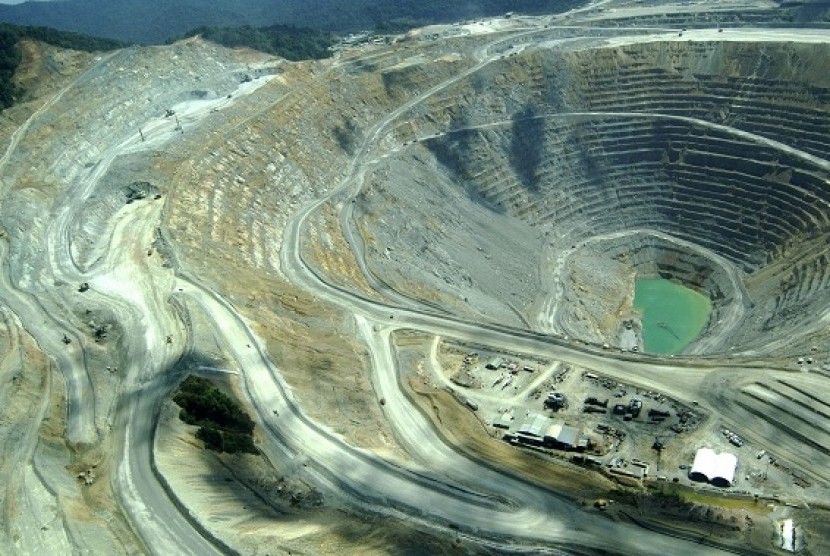REPUBLIKA.CO.ID, JAKARTA - Indonesia wants miners with long- t erm contracts to hike export royalty payments to 10 percent in renegotiated deals, a deputy minister said on Friday, from as little as 1 percent now, as the country looks to boost revenue from its resources.
The mining sector contributes 12 percent to the gross domestic product of Indonesia, Southeast Asia's largest economy and a favourite of emerging market investors. The contract renegotiations with high-profile producers are politically sensitive, particularly in the run-up to elections in 2014, when President Susilo Bambang Yudhoyono is due to step down after two terms.
"We are still waiting for the next steps. Renegotiations are not easy. It may take months or even a year," Deputy Energy and Minerals Minister Rudi Rubiandini said of the talks.
"There's a message from Mr Hatta requesting that the renegotiations shift to royalties of 10 percent," Rubiandini told a mining conference, referring to Hatta Rajasa, the lead government negotiator on the contracts.
The government wants contract talks with the Indonesian units of Freeport-McMoRan Copper & Gold Inc, Vale and Newmont to focus on royalties, he said. Exports of some minerals have slumped after Indonesia issued a series of new mining regulations this year that shook the industry, among them one requiring foreign miners holding certain contracts to divest 51 percent to local firms after 10 years of production.
Affect the older producers
The government did not spell out if the royalty comments applied to all holders of contracts of work or excluded companies that mine coal. "It looks like it primarily affects the older producers who operate under long-term contracts, and were not affected directly by much of the interim export ban earlier this year," said London-based analyst Nic Brown of French bank Natixis.
"It's an interesting development and part of a trend towards resource nationalism we're seeing the world over."
Price-wise, the move may provide most support for the copper concentrate market, which has not yet been directly affected by the mining regulation changes, with lower supplies of bauxite and nickel ore already priced in to the market, Brown added.
"Copper, nickel, aluminium would be the metals most directly affected, nickel and aluminium less so because they are already exporting less of their ores," he said.
Among Indonesia's three biggest mining companies, Vale's local unit, the largest nickel producer in the country, said it was willing to increase its royalty payments in a renegotiated contract.
"We are willing to adjust the royalty from what we actually paid up to now," Chief Executive Nicolaas Kanter told Reuters by telephone.
A spokeswoman for Freeport, which owns the Grasberg mine on Papua island in eastern Indonesia, the second-largest copper mine in the world and also home to the largest known reserves of gold, said she expected a solution to benefit both the company and government.
"We believe when the final contract materializes it should take into account the national aspirations as well as business investment needs from our side," said Daisy Primayanti, but declined further comment.
Newmont has not begun renegotiation talks with the government, a company official said. Freeport, which currently pays royalties of 1 percent on gold and 3.5 percent on copper, first won its contract to mine at Grasberg in the 1960s.
The current talks will focus on the size of the concession, the type of contract it holds, taxes and whether the company should be obliged to process its ores domestically. Rubiandini declined to comment on whether a planned 2014 ban on exporting unprocessed metals would be extended. Relaxing the 2014 deadline would not be easy and would require a change of law, Deddy Saleh, an official of the trade ministry, told Reuters earlier on Friday.


